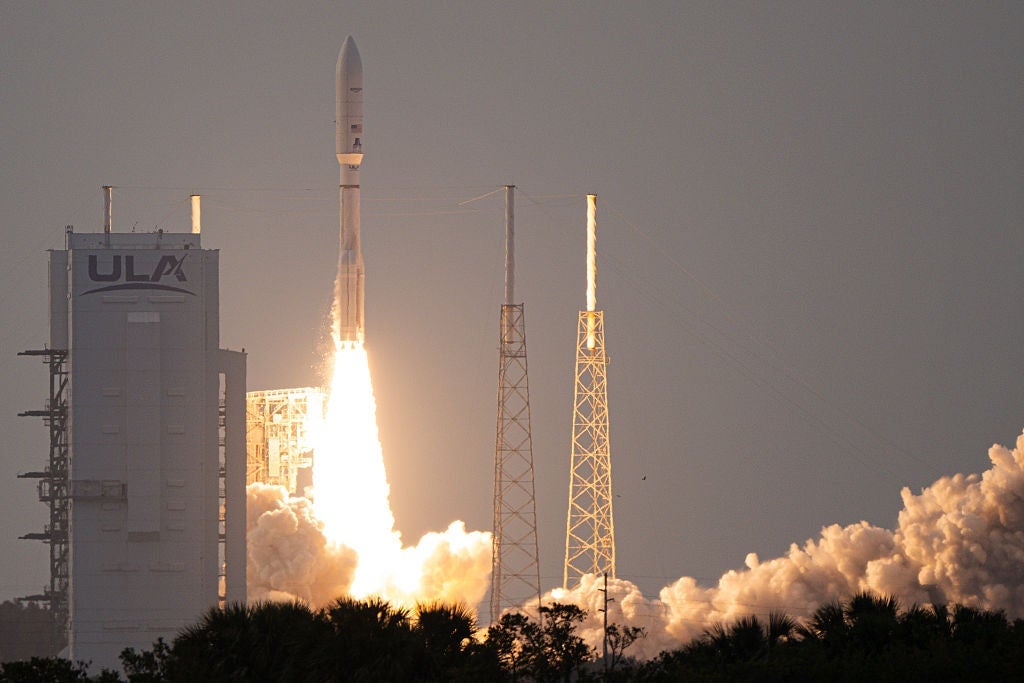Amazon's SpaceX Starlink competitor was launched into space for the first time
The launch for Amazon's Project Kuiper is a major step for the company if it wants to eventually catch up to Elon Musk's Starlink

Amazon (AMZN) launched its first 27 internet satellites into space on Monday as it tries to counter the dominance of SpaceX’s Starlink.
Suggested Reading
The United Launch Alliance’s (ULA) Atlas V rocket carrying the satellites for Amazon’s Project Kuiper blasted off from Cape Canaveral, Florida, just after 7 p.m.
Related Content
Amazon CEO Andy Jassy posted on X early Tuesday morning that the launch was successful, and “our first 27 production satellites are operating as expected in low Earth orbit.”
“While this is the first step in a much longer journey to launch the rest of our low Earth orbit constellation, it represents an incredible amount of invention and hard work,” Jassy said.
Project Kuiper is Amazon’s Starlink competitor, and the company says it plans to eventually have at least 3,000 satellites in low Earth orbit to create its own satellite broadband network.
Its mission “is to bring fast, affordable broadband to unserved and underserved communities around the world,” Amazon says. Project Kuiper is separate from Amazon founder Jeff Bezos’s rocket company, Blue Origin.
Gary Wentz, ULA vice president of Government and Commercial Programs, described the launch in a press release as “an incredible milestone in Amazon’s ambitious initiative to provide fast, reliable broadband service to unserved and underserved communities around the world.”
The Amazon initiative has a good deal of catching up to do if it wants to compete with Starlink, which already has north of 7,000 satellites circling the planet.
